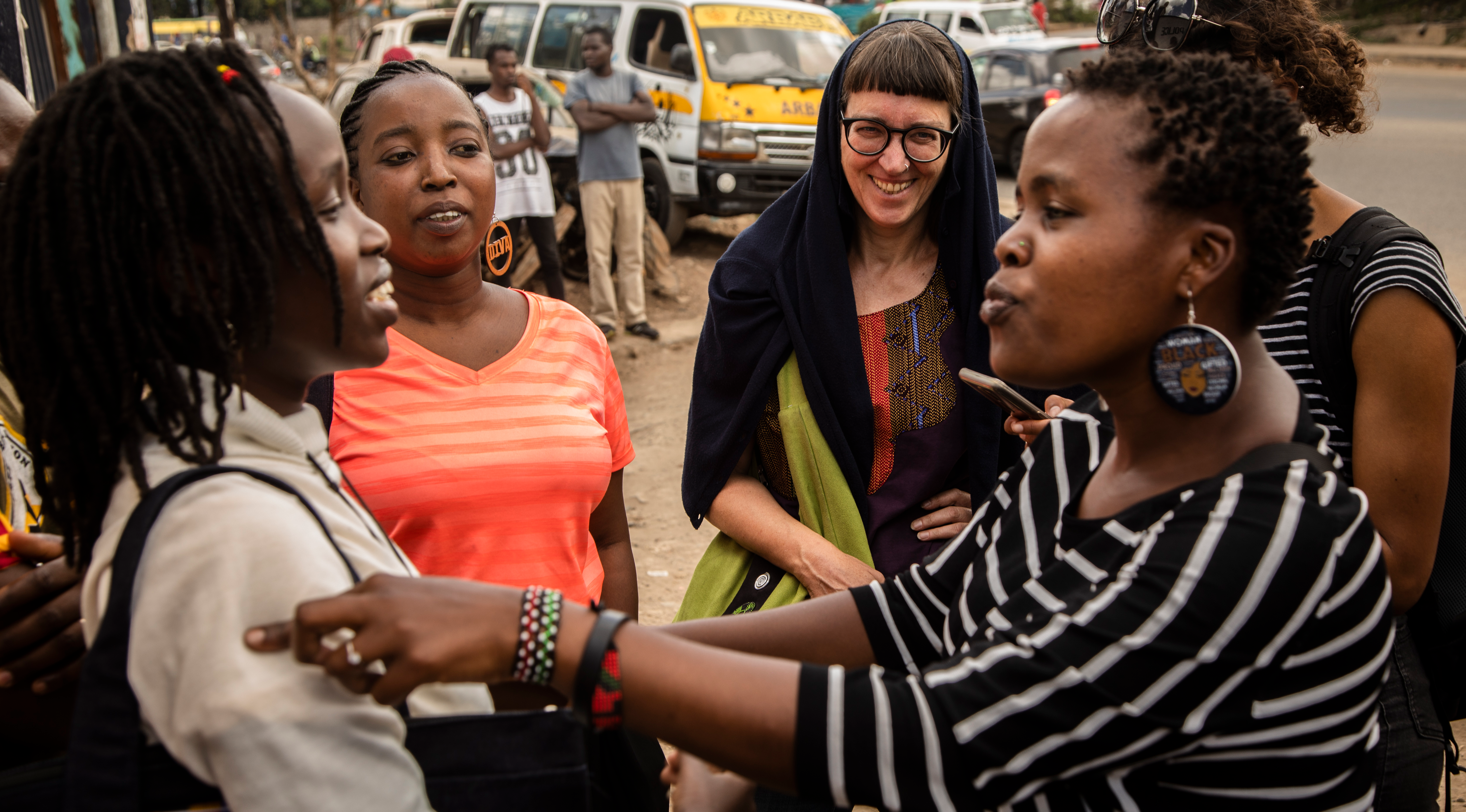Whether they act as a driving force or present a challenge to overcome, emotions play an integral role in the work of human rights defenders. To gain an insight into the bearing that advocacy and emotions have on their day-to-day work, PBI Switzerland talked to Faith Kasina, a human rights defender from Kenya. The risk of disappearance and assassination is something she faces every day. As co-founder and coordinator of the Kayole Community Justice Center, she works in the slums of Nairobi and focuses particularly on campaigning against extrajudicial killings – a recurring problem in Kenya. The NGO platform Missing Voices recorded 169 cases of such killings in 2021 alone (https://missingvoices.or.ke/statistics/). These threats, to which she lays herself open as an activist, have made her constantly wary: “I’m always afraid, always alert to what’s going on around me.” But though emotions such as fear and stress may be ever-present in her work and in her life in general, they are also motivating factors. “Instead of wearing me down, they make me more determined, because I don’t know if I’m going to wake up tomorrow. So I want to do everything I can now and fulfill my mission.”
For Faith to continue her work as an advocate and see it through to a successful conclusion, empathy, support and solidarity are what’s needed. However, as the representative of a community, this responsibility does not always coincide with her own needs. “In some cases, the community will only support you when it’s in their own interests. For example, one day a mother will support me because her son has been killed and I deal with issues relating to extrajudicial killings, but the next day she may no longer want to be associated with the demands I’m making. Sometimes members of the community don’t understand that my role is not about fighting purely for them, but also – first and foremost – it’s about fighting for myself.” Striking the right balance between solidarity and taking care of oneself is therefore essential to avoid being overwhelmed.
At the community justice centers where Faith Kasina works, the workshops co-organized by Peace Brigades International are some of the expedients put in place for dealing with the social and psychological aspects of defending human rights. The workshops bring together activists involved in documenting extrajudicial killings, giving them an opportunity to discuss their challenges, traumas and frustrations and to feel they are supported. Sharing their experiences is crucial to understanding their own actions in a given situation, learning to manage their emotions and meeting their own needs. After all, defending human rights is a full-time job and it can be difficult to keep things in perspective. “I think one of the problems for human rights defenders is that we can’t allow ourselves a break. We always feel like we’re letting our community down. So it’s important we learn to step back and take some time for ourselves.”


